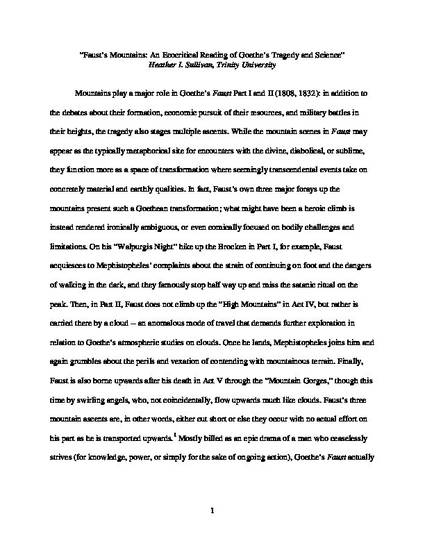
Ecocriticism's environmental perspective views human beings, bodies, and culture as participants in ecological interactions and exchanges with the rest of the energetic and material world, including both biotic and abiotic forms. This ecocritical essay assesses how Goethe portrays Faust's mountain experiences in both part I and part II (1808, 1832) of the tragedy as engagements with physical matter rather than with spiritual inspiration. Indeed, by using ecocriticism to study Goethe's science as the context for the play, we see that Faust's many mountains are more than a setting; they actively destabilize his — and our — assumptions about “passive matter” and recontextualize human endeavors in their physical environment. Faust's mountains inspire the desire to “ascend,” but they also offer a glimpse into the massive geological changes occurring through deep time even as they radically alter the climatic systems of the biosphere on a daily basis. In other words, scientists in the Age of Goethe recognized that the apparent solidity of mountains is actually a short-term illusion; mountains instead embody and enact climatic and geological flows in which we human beings are not the only active forces. Goethe's Faust documents such issues, though this is often overlooked in readings celebrating human ingenuity and action as the supreme, spiritual, and/or modern force shaping our world for the “better,” regardless of so-called “collateral damage” such as murder, colonialism, piracy, and the final putrid swamp. In contrast, viewing the tragedy through ecocriticism and Goethe's science offers a possible environmental stance acknowledging humanity's position within these many physical processes rather than as transcendental beings who dominate at whim and without long-term costs.
